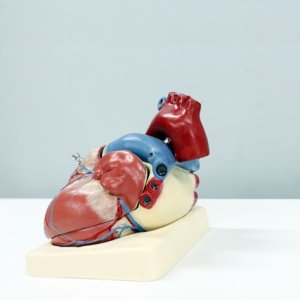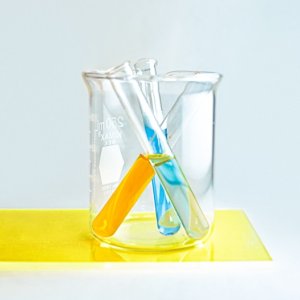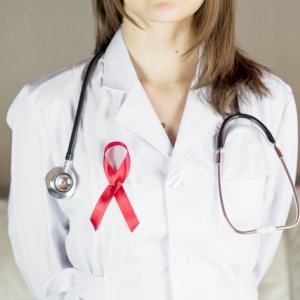Biopharmaceutical Access, Holistic Approach Are BMS’ Priorities

STORY INLINE POST
Q: In a region with limited access to health services, what are BMS’ strategies to bring solutions to patients in Latin America?
A: Bristol Myers Squibb (BMS) is an innovative biopharmaceutical company that aims to develop medicines that transform the lives of patients through science. We have been present in Latin America for over 75 years. Our backbone is clinical research in oncology, hematology and immunology. In the next five years, we will invest US$200 million in our clinical development program to bring in six new drugs and obtain additional approvals for existing drugs.
BMS has a strong continuing education strategy to help patients access new therapies. We develop medical education programs to accompany the medical community as it learns the scientific evidence behind new technologies used to identify patient populations that could benefit from them. We also develop patient education initiatives to accompany them throughout their treatment and we generate awareness and early diagnosis campaigns.
We promote strategic alliances to strengthen a sustainable, patient-centric health ecosystem that makes new developments available to the right patient at the right time. For example, the All Can initiative is a multidisciplinary coalition that generates evidence to improve the care of patients with cancer. It was launched in Argentina in 2019, in Colombia in 2020 and will shortly be presented in Mexico. The alliance brings together medical societies, patients, health institutions and academia to develop innovative solutions that benefit patients.
Q: Regulation is said to delay innovation due to administrative processes. How could Latin America improve this process and foment an innovation environment?
A: Regulatory agencies are key to ensuring equitable and timely access to medical devices, supplies and innovative drugs. Strengthening Latin American agencies is key. To advance strong regulation, it is necessary to accelerate the digital transformation and make the evaluation and approval of pharmacological and clinical studies more efficient and agile. Faster approval will benefit patients in the region by making innovations available to them in record time.
In Mexico, the regulatory environment is improving and Latin America could contribute to the development of the International Standards of Innovation, Digital Transformation and Trust discussed in the report, “Strengthening the PAHO Regulatory System in America.”
A key concept of this report is “reliance,” which WHO defines as the act by which a regulatory agency can take into account and give weight to regulatory evaluations carried out by a Regulatory Agency of Reference. The local authority remains responsible for approving or rejecting, according to its criteria. This takes advantage of the synergy between regulators and allows a reallocation of resources toward strategic and priority issues. BMS has been promoting this initiative as part of FIFARMA.
Q: BMS targets two of Mexico’s main problems: oncology and cardiovascular diseases. How have your therapies helped reduce their severity and mortality rates?
A: We are focusing on areas where there are still unmet medical needs. We have a strong presence in oncology and hematology, with a portfolio of approved drugs for different types of tumors and blood diseases. We continuously expand our drug portfolio to include new therapeutic areas to benefit more patients.
BMS has been a pioneer in immunotherapy. We brought this field to Latin America 10 years ago with strong results in terms of long-term survival and quality of life, leading us to consider immuno-oncology as a new paradigm in the treatment of cancer. Survival and quality of life are fundamental allies of health systems because they allow patients to continue living productive lives without depending on permanent hospital care.
The pharmaceutical research industry has made a fundamental contribution to the economies of Latin America. An IQVIA survey for FIFARMA found that the research industry in the region invested more than US$1 billion between 2017 and 2019.
The economic impact of the research done by the pharmaceutical industry in Latin America is estimated to total US$37 billion, as the industry generates 670,000 jobs. For every direct job created, 1.65 indirect jobs are generated, on average.
Q: As one of the leading R&D companies globally, what are your priorities in this area?
A: Our commitment to R&D is central to our strategy. We have 20 new molecules in development in 87 clinical studies involving over 1,200 researchers, 250 sites and 3,000 patients. A significant percentage of our studies focus on oncology, researching treatments for different types of cancer. We are also developing molecules in other areas, such as hematology, autoimmune diseases, fibrosis, heart failure and other heart diseases.
Q: Latin America is a vast and diverse region. How are its different population profiles contributing to BMS innovation?
A: We are working on initiatives to increase diversity and access to clinical protocols for diverse populations. In Latin America, we are increasing research projects in public institutions and we will expand this activity to medium and small cities to contribute to reducing inequities in access to clinical research.
To fulfill our mission of helping patients, we are committed to developing a diverse and inclusive workforce. As a science-driven company, we know that it is through diversity of thoughts and experiences that we will be able to capitalize on opportunities to benefit more patients.
Diversity and inclusion are important pillars. Internally, we have teams that work on different aspects of diversity through the BioPharma Teams, B-NOW (Bristol Network of Women), Pride Alliance or CLIMB, which integrates the different generations in the workplace. Externally, we develop alliances to support diversity, such as that with Casa Trans in Argentina to support sexual diversity, the CREA Futura program and the initiative developed alongside Tecnológico de Monterrey to promote gender equality. Similarly, we work to promote diversity among our suppliers to increase by 10 percent the amount of business we do in one year with small companies managed or owned by women and minorities.
Q: Prevention is touted as the future of healthcare. How is BMS complementing its therapies with treatment adherence strategies and preventive education?
A: From the perspective of health economics and system sustainability, prevention and an early-stage diagnosis are more efficient than treating diseases in advanced stages. In Latin America, we develop education and awareness campaigns to encourage prevention and timely diagnosis of diseases.
According to data from the American Cancer Society, the five-year survival rate for women with localized breast cancer is 99 percent in its early stages. When the diagnosis is made at the metastatic state, the survival rate drops to 28 percent.
We partner with patient organizations and medical societies to emphasize the importance of frequent doctor visits and reinforce knowledge of risk factors and disease symptoms, the early identification of which is critical to treatment outcome. Additionally, we focus on continuing medical education to inform diagnosed patient about the therapies that will benefit them according to the available medical evidence. We have teams that work to make patient access a reality.
Q: How could Latin America prioritize investment in science and technology for long-term economic sustainability?
A: The pharmaceutical research industry contributes to the economies of countries not only in the region but in the world. Globally, the research biopharmaceutical industry invested an estimated US$188 billion in R&D in 2020, including COVID-19 research efforts. In 2021, the US$200 billion barrier will be broken. This is 7.3 times more than the aerospace and defense industry, 6.5 times more than the chemical industry and 1.5 times the computer software and services industry. This investment allows creating direct and indirect qualified employment, generating knowledge and technology transfer and developing innovative drugs that will benefit patients.
These figures reflect the commitment of the research industry. The average cost to develop a drug has increased 67 percent since 2010, reaching US$2 billion in 2020, according to Deloitte. Additionally, Latin America represents 10 percent of clinical studies, which indicates that there is still an opportunity to increase activity and investment in research.
Q: What new financing schemes for innovation could best fit Mexico’s health system?
A: In Mexico, we have seen advances in making innovative therapies available at different public institutions, including IMSS, ISSSTE and INSABI.
Innovative Access Models (MIAs), such as payments for results or shared risks, are efficient mechanisms that release the high budgetary burden that many health systems have, leading to greater access.
It is important for the industry to work with the government and health institutions to benefit patients who need access and ensure the sustainability of the health system. The approach should always be holistic and focus on prevention, early diagnosis, medical education and right-time access.
Q: What technological tools like AI, IoT, big data or cloud is BMS using to improve its R&D?
A: In the past year, we accelerated our digital transformation and the adoption of new platforms and tools to optimize processes. Many of the initiatives such as AI, big data and the cloud are already used in our headquarters and might be implemented in Latin America in the coming months.
Sustainable R&D models are important because research costs have increased according to the complexity of the developments, so incorporating information tools and data analysis will be essential. Some trends focus on the development of target therapies and data-driven R&D models are already being developed.
Consequently, advances in data analysis, real-world evidence and information technologies will allow the end-to-end automation of R&D, significantly reducing development times.
Bristol Myers Squibb is a global biopharmaceutical company focused on discovering, developing and delivering innovative medicines. The company focuses on oncology, cardiovascular, immune science, fibrosis and other therapies.








 By Miriam Bello | Senior Journalist and Industry Analyst -
Wed, 09/29/2021 - 12:30
By Miriam Bello | Senior Journalist and Industry Analyst -
Wed, 09/29/2021 - 12:30
















